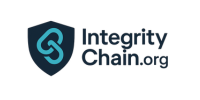Why Compensation?

At IntegrityChain, we operate on a simple but bold principle: those who prevent harm should be compensated for doing so.
Our platform exists to help whistleblowers report systemic wrongdoing in funded startups—such as fraud, regulatory violations, and internal cover-ups—before they spiral into public scandals. We first reach out to companies confidentially, presenting them with a choice: the harm, or face public disclosure.
This model is often misunderstood. Some confuse it with extortion. Others ask: why not just expose the wrongdoing for free?
Let’s explain why what we do is not only legal, but ethical, responsible, and grounded in democratic accountability.
What IntegrityChain does?
- We act as intermediaries between anonymous whistleblowers and the companies they’re reporting on.
- We validate reports internally to ensure credibility and evidence before any outreach.
- We contact the company confidentially—before any public exposure—offering them the chance to address the issue.
- We ask for fair compensation for the whistleblower’s risk, contribution, and role in preventing larger fallout.
What IntegrityChain doesn't do?
- We do not threaten, coerce, or demand hush money in exchange for silence.
- We do not fabricate or exaggerate claims to solicit payment.
- We do not make public posts or engage in press outreach until the private resolution process has been unsuccessful.
This model functions not as a shakedown, but as a last checkpoint for organizations to act responsibly.
How does this differ from Extortion?
Extortion involves threats to cause unjust harm unless payment is made. It typically includes:
- Demands without a legal or ethical basis
- Use of fabricated or irrelevant information
- No intention of accountability or resolution
In contrast, our model:
- Exposes actual misconduct backed by evidence
- Engages privately and gives companies time to respond
- Encourages reform, not cover-up
- Offers whistleblowers a structured, lawful avenue for reward
What we do mirrors global public-sector practices:
The U.S. SEC and IRS both pay whistleblower rewards. South Korea’s ACRC offers up to $1.5M for tips that prevent public harm. The difference? We’re doing it where the government doesn’t—in the fast-moving, underregulated startup world.
Why Compensation Matters?
Whistleblowing is not free.
- Whistleblowers risk their jobs, careers, mental health, and safety.
- Many face lawsuits, blacklisting, or burnout.
- They provide crucial insight that saves companies millions in fines, lawsuits, and reputational loss.
Requesting compensation isn’t a bribe for silence. It’s a reward for accountability, just like a finder’s fee or a bug bounty in cybersecurity. You wouldn’t expect an engineer to fix your data leak for free. Why should the person who saves your company from a fraud investigation walk away empty-handed?
IV. Our Ethical Philosophy
We don’t just want to catch fraud. We want to prevent destruction—for investors, employees, and founders alike.
Our mission is grounded in:
- Transparency: All reports are logged, timestamped, and preserved.
- Accountability: Companies that fix issues in good faith avoid public fallout.
- Justice: Whistleblowers deserve compensation for the risks they take and the damage they help avert.
We see this not as conflict—but as a win-win.
Companies have the opportunity to rectify issues discreetly.
Whistleblowers get justice, not retaliation.
V. What Happens When a Company Refuses
If a company:
- Ignores our outreach,
- Dismisses the claim without engagement, or
- Refuses to acknowledge harm…
…only then do we move forward with responsible public disclosure through media partnerships, investor notices, or direct public reporting.
Even then, we redact identities, anonymize sensitive details, and allow the final right of reply - because our goal isn’t shame. It’s a change.
A New Integrity Economy
IntegrityChain is not here to shame or extort—we’re here to balance the power between vulnerable insiders and powerful institutions.
If startups can offer millions in bonuses, exit packages, or inflated valuations, they can also reward the truth-tellers who keep them from collapse.
This isn’t extortion.
It’s ethics.
And in a world where silence has a cost, truth deserves a reward.
